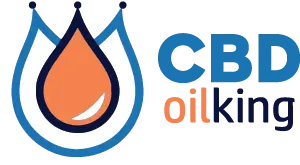
CBD is a multibillion-dollar industry globally. This compound has taken the world by storm in recent years. If you are new to CBD, you probably have some questions regarding this compound. In this article, we will look at all the pertinent CBD facts for beginners that you need to know in order to navigate the CBD market and feel confident in your journey, an help you to address questions like how much CBD should I vape for pain relief?. We will take a good look at what CBD is exactly, how it can be utilized, its legality, and more. If you are new to CBD, check out these CBD facts for beginners.
CBD is short for cannabidiol. Cannabidiol or CBD is a phytocannabinoid. A phytocannabinoid is a compound found in psychoactive high THC strains of cannabis as well as low THC non-psychoactive chemovars of industrial hemp. Another phytocannabinoid that you may have heard of by the name of Delta-9-Tetrahydrocannabinol, or THC for short.
THC is the primary intoxicating phytocannabinoid found in cannabis and hemp. CBD, however, unlike THC, does not offer psychoactive properties that will lead to the feeling of intoxication, even when consumed in high concentrations. CBD, in fact, has been shown by research to potential negate the effects brought on by THC and is recommended by many to keep on hand in case of overconsumption of THC where legal.
Cannabidiol, or CBD for short, was discovered by an American chemist by the name of Roger Adams. Adams is also semi-responsible for the discovery of THC. It was in 1942 that the chemist first isolated CBD from the cannabis species. Since then, there have been many amazing, perhaps even remarkable, research discoveries surrounding this cannabinoid. In fact, for a long time, the United States federal government-owned a patent on the antioxidant and neuroprotectant properties of cannabinoids.
Today, CBD can be found in a variety of products that are utilised by consumers around the globe. Some of the most common products that you can find infused with CBD include but are not limited to the following;
Oils – CBD oils are one of the most utilised and well-known CBD products in existence. The story of Charlotte Figi took the world by storm and brought major attention to the use of CBD oils. Since then, these products have become more than abundant to meet the demands of consumers worldwide. Oftentimes, these products are simply held under the tongue or swallowed. They can also be added to food and beverages.
Edibles and Beverages – CBD-infused foods and drinks are very trendy and for a great reason. This is a quick, easy, and discreet, not to mention a delicious way to consume CBD. Today you can find CBD infused into a wide variety of edible products, including gummies, cookies, brownies, cakes, and much more.
Topicals/Transdermal – CBD isn’t just consumable through ingestion. You can also apply CBD products of various sorts directly to the skin. You can find CBD in a wide variety of lotions, creams, salves, balms, serums, and more. CBD can also be found infused into transdermal patches that can be applied directly to areas of concern.
CBD Pharma – While CBD isn't a pharmaceutical, there are products that are typically characterised as pharma delivery methods simply because of the way they are utilised. A great example would be CBD capsules which are capsules filled with CBD oil and CBD infused suppositories.
You can even make your own CBD products by utilising what is known as CBD isolate. CBD isolate, which typically comes in the form of a crystallised powder, can be added to literally anything you eat, drink, lather on your skin, or otherwise consume. This has become preferred by many CBD consumers as it allows them to add it to things they already enjoy, which often includes foods and beverages that are not hyped up in sugar like many CBD edibles on the market today.
The legality of CBD has changed drastically around the world in recent years. Seeing how CBD is derived from cannabis and hemp plants, for many years, it was considered highly illegal, even though it offered no intoxicating effects on its own. CBD today, however, is legal in most places, with regulations in place, of course.
In the United Kingdom, CBD is, for the most part, legal for many. There are, however, some restrictions that must be adhered to. In the UK, CBD products must contain less than 0.2% THC content per gram of product and must contain less than 1mg of THC in any single unit container. The CBD utilised in the manufacturing process of those products must be extracted from approved chemovars of hemp that contain less than .2% THC.
In addition, anyone looking to produce any of the products listed above must submit a Novel Foods Application and receive premarket approval. Otherwise, their products are not legal to be produced, marketed, or sold to consumers. CBD product manufacturers also have to obtain the proper approval and licenses before going into business as well.
While the World Health Organisation has deemed CBD as generally safe, not all CBD is created equal. For that reason, it is important that you do your due diligence to protect yourself when purchasing CBD products. Some of the things you can do to help assure that you are purchasing a safe CBD product are as follows.
Quality CBD products will always include transparent and easy access to independent third-party testing results for each batch of product they offer. If a company does not show that they are offering a product that tests clean from impurities as well as the potency of what is in their product, it is likely not a good product.
As with almost anything you purchase, some of the best advice you can get is to simply ask around. Talk to your friends, family, co-workers, and complete strangers and ask them if they have tried CBD. If they say yes, find out what brands and products they have fallen in love with, and then do some research yourself. You can also find reviews for almost every CBD product out there which can provide great insight into the quality and effectiveness of various CBD products on the market today.
We hope that you now feel confident navigating the CBD market with these CBD facts for beginners.

This article is authored by Dr Casey Abrahamsmen. Dr Abrahamsmen is a board certified physician with over 13 years of experience in internal medicine and pain management. He practises Palliative care at a hospital in Venezuela and is a strong advocative for CBD and believes CBD has a major role to play towards healthy non addictive pain management habits. You can read more about Dr Abrahamsmen here.
This article was peer-reviewed by Dr M Mansoor Siddique (PhD). Dr Siddique has over eight years of experience working with CBD and CBD products.
Disclaimer: All of our products are not intended to diagnose, treat or cure any disease. It is recommended to check with doctor before starting a new dietary supplement program. All CBD products sold have less than 0.2% THC content and abide by both EU an UK law.